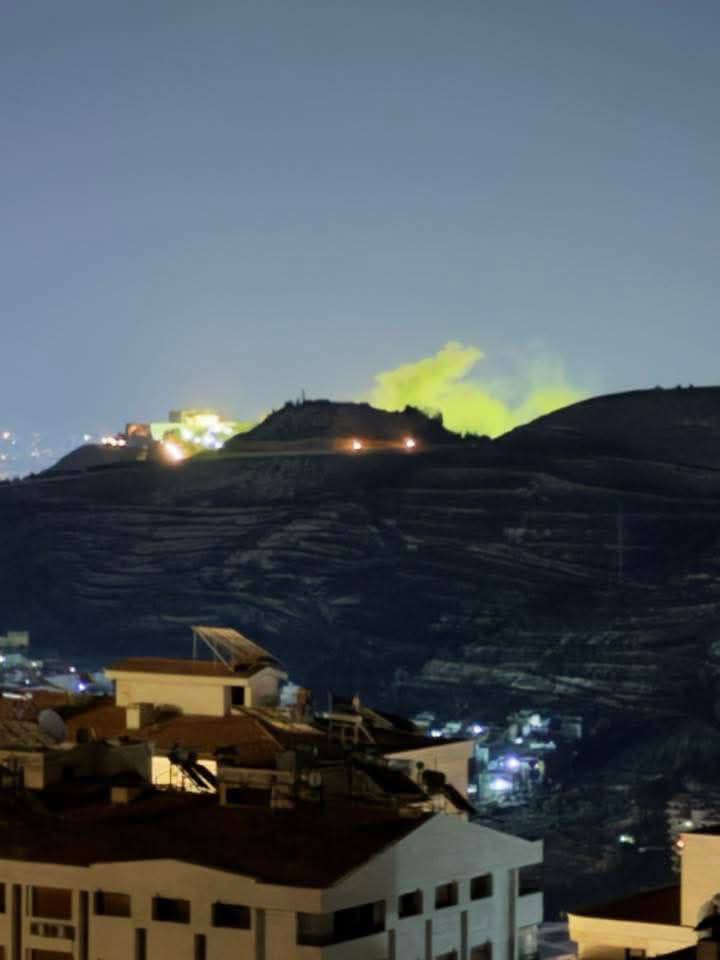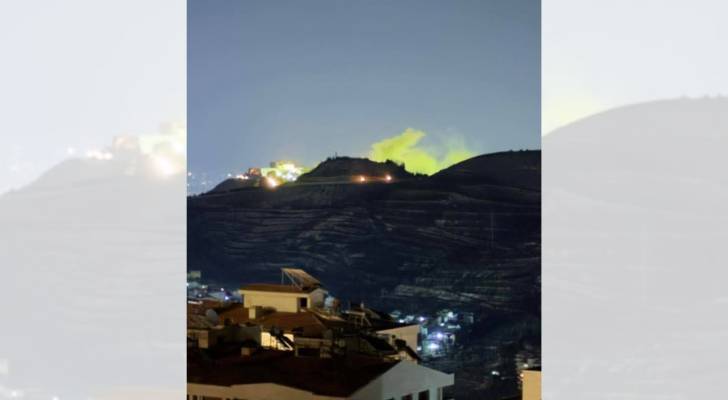Smoke rising from an "Israeli" airstrike near the Syrian presidential palace (L).
“Israeli” military says struck near Damascus presidential palace
“Israel's” military said Friday it launched air strikes near the presidential palace in Damascus after defence minister Israel Katz threatened intervention if Syrian authorities "failed to protect the Druze minority".

“Israel” has since then attacked hundreds of Syrian military sites and on Friday announced its "fighter jets struck adjacent to the area of the palace" in the capital Damascus, a military statement said.
Syrian Foreign Minister Asaad al-Shaibani on Thursday called for "national unity" as "the solid foundation for any process of stability or revival".
"Any call for external intervention, under any pretext or slogan, only leads to further deterioration and division," he wrote on X.
“Israel” claims the new authorities in Syria are jihadists and has warned them to protect the Druze minority, with Defence Minister Israel Katz saying they could otherwise respond "with significant force".
“Israel” carried out strikes near Damascus on Wednesday and has also sent troops into the demilitarised buffer zone that used to separate “Israeli” and Syrian forces on the Golan Heights.




